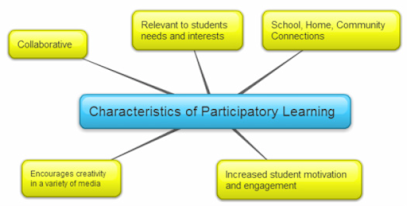Shaping Minds, Transforming Perspectives: Paulo Freire, Ubiratan D'Ambrosio, and the Ethnomathematics Connection
Hey everyone! Welcome back!
In the realm of education and mathematics, two influential figures stand out for their transformative contributions: Paulo Freire and Ubiratan D'Ambrosio. Their work has not only left an indelible mark on the field but has also laid the groundwork for the exploration and understanding of ethnomathematics. In this blog post, we delve into the lives and ideas of these visionaries, exploring their impact on education and the intersection with ethnomathematics.
Paulo Freire: Education for Liberation
Paulo Freire, a Brazilian educator and philosopher, is renowned for his groundbreaking work in critical pedagogy. His seminal work, "Pedagogy of the Oppressed," challenged traditional educational models and advocated for a participatory approach that empowers learners. Freire's ideas centred on dialogue, critical thinking, and the recognition of learners as active participants in their education. Freire emphasized the importance of understanding education in its cultural and social context. This resonates with the ethos of ethnomathematics, which underscores the significance of considering cultural perspectives in the teaching and learning of mathematics. Freire's focus on empowering learners aligns with the goals of ethnomathematics, which seeks to empower individuals by valuing and incorporating their cultural mathematical knowledge into the educational process.
Ubiratan D'Ambrosio: Pioneer of Ethnomathematics
Ubiratan D'Ambrosio, a Brazilian mathematician and educator, is widely regarded as the founder of ethnomathematics. His work has played a pivotal role in expanding our understanding of how mathematical knowledge is embedded in culture. D'Ambrosio's framework incorporates the mathematical practices of diverse cultures, emphasizing the importance of cultural diversity in mathematics education. D'Ambrosio's ethnomathematics framework celebrates the diversity of mathematical practices across cultures. It acknowledges that mathematics is not a monolithic entity but a reflection of the rich cultural contexts in which it develops. Ethnomathematics, as championed by D'Ambrosio, advocates for inclusive education that recognizes and values the mathematical knowledge of all individuals, irrespective of their cultural background. This aligns with the inclusive and participatory vision advocated by Paulo Freire.
The Ethnomathematics Connection: Bridging Theory and Practice
Both Paulo Freire and Ubiratan D'Ambrosio share a common thread in their commitment to transformative education. Their ideas have converged in the realm of ethnomathematics, a field that strives to bridge the gap between formal mathematics and the mathematical practices embedded in diverse cultures.
Synthesis of Ideas:
Critical Thinking: Freire's emphasis on critical thinking finds resonance in ethnomathematics, where learners are encouraged to critically engage with mathematical concepts within their cultural contexts.
Participatory Learning: Both educators advocate for a participatory learning environment where students actively contribute to their education. In ethnomathematics, this means incorporating learners' cultural mathematical knowledge into the educational process.
To wrap up, the legacies of Paulo Freire and Ubiratan D'Ambrosio continue to shape educational paradigms and expand our understanding of the interconnectedness between culture and mathematics. In the realm of ethnomathematics, their ideas converge to create a framework that not only acknowledges the diversity of mathematical practices but also empowers learners by valuing their cultural contributions. As we navigate the evolving landscape of mathematics education, the influence of these two visionaries serves as a compass, guiding us toward a more inclusive and culturally sensitive approach to learning and teaching mathematics.
Thanks for reading my blog! I hope you enjoyed it!
-susn :)







Comments
Post a Comment